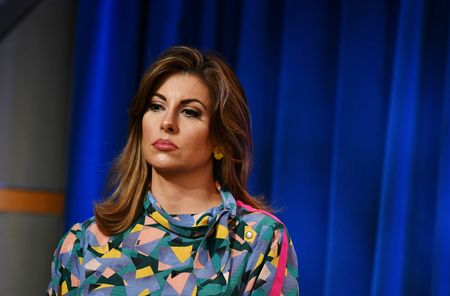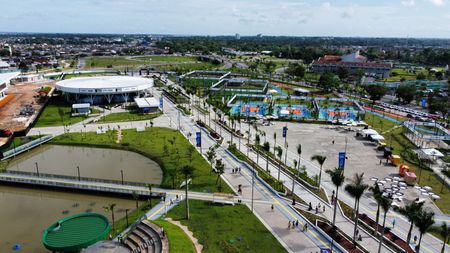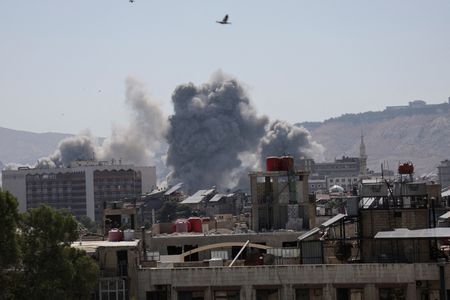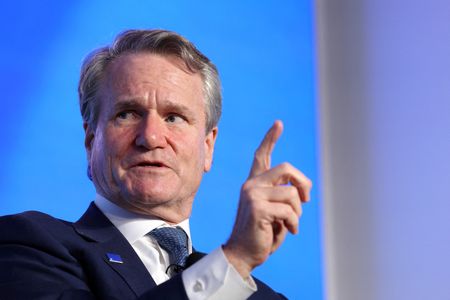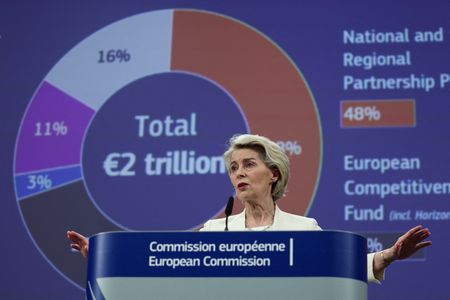By Samia Nakhoul, Humeyra Pamuk and Maya Gebeily
(Reuters) – President Donald Trump’s envoy is set to deliver a firm message to Lebanese leaders during a visit on Thursday: the U.S. will not tolerate the unchecked influence of Hezbollah and its allies over the formation of a new government.
The message will be that Lebanon faces deeper isolation and economic devastation unless it forms a government committed to reforms, eliminating corruption and curbing the stranglehold of the Iranian-backed Shi’ite group, according to an administration official, a Western diplomat and regional government sources.
The U.S. delegation, led by Morgan Ortagus, deputy special envoy for the Middle East, will meet newly-elected President Joseph Aoun, Prime Minister-designate Nawaf Salam and Parliament Speaker Nabih Berri.
Salam was tasked more than three weeks ago with forming a government, in which senior posts are traditionally apportioned among Lebanon’s sectarian communities under a longstanding system of power sharing.
But the U.S. is seeking to curb the influence that Hezbollah will wield over it, in an attempt to capitalise on the pummeling that the group took in its war with Israel last year.
“It’s important for us to set the tone for what we believe a new Lebanon should look like going forward,” said the senior U.S. administration official, while asserting that Washington was not “picking” individual cabinet members but ensuring Hezbollah has no part in the government.
“There was a war and Hezbollah was defeated and they need to remain defeated,” the official added. “You don’t want somebody corrupt. It’s a new day for Lebanon. Hezbollah was defeated, and the new government needs to match that new reality.”
Hezbollah and its Shi’ite ally Amal – headed by Lebanon’s longtime parliament speaker, Berri – hold a significant number of seats in Lebanon’s 128-member parliament, which needs to give any new government a vote of confidence.
Salam has allowed them to nominate four out of five Shi’ite ministers in his new cabinet, including the key role of finance minister. They have insisted on retaining veto power over who would be selected as the fifth, according to Lebanese political sources.
That tussle dashed speculation that Salam would announce the new government on Thursday, just hours before Ortagus was set to land in Lebanon. The premier-designate walked out of the presidential palace without giving a statement to reporters.
David Schenker, a former U.S. assistant secretary of state for Near Eastern affairs, said that genuine reform cannot come from Amal-affiliated figures. “It cannot be business as usual”.
“If Lebanon is to become a country that is not rife with corruption, that embraces reform and is looking to move ahead as a sovereign state, then Nawaf Salam is not going to be able to appoint Hezbollah or Amal,” added Schenker, who is now a senior fellow at the Washington Institute think tank.
Allowing Hezbollah or Amal to retain so much sway over the government could impede Lebanon’s access to vital foreign funds to help recover from a financial meltdown and meet a massive reconstruction bill from last year’s war, in which Israeli air strikes flattened swathes of the country.
A nearly five-year economic meltdown has cost Lebanon’s currency roughly 98% of its value, seen GDP contract by 40%, pushed inflation into triple-digits and drained two-thirds of the central bank’s foreign currency reserves, the IMF said.
Western calls for reform in Lebanon are echoed by countries in the region such as Saudi Arabia and Qatar that are expected to be called upon to help fund reconstruction.
Ahead of his first visit to Lebanon in 15 years, Saudi Foreign Minister Prince Faisal bin Farhan Al-Saud said last month the kingdom needs to “see real action and real reform” in Lebanon for Saudi funds to come.
“Our message is unanimous with the international community; we’re ready to provide financial support and investments once reforms are in place,” a source close to the Qatari government told Reuters.
(Reporting by Samia Nakhoul in Dubai, Humeyra Pamuk in Washington and Maya Gebeily in Beirut; Writing by Samia Nakhoul)


